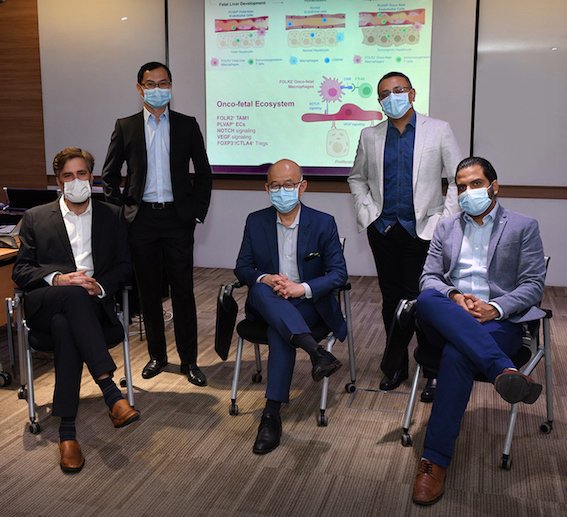
A team of researchers and clinician-scientists from A*STAR’s Genome Institute of Singapore (GIS), Singapore Immunology Network (SIgN), National Cancer Centre Singapore (NCCS), and KK Women’s and Children’s Hospital (KKH), have identified a pivotal “fetal-like” reprogramming of the tumour ecosystem in human hepatocellular carcinoma (HCC).
This study leveraged the platform established by the National Medical Research Council (NMRC) Translational and Clinical Research (TCR) Flagship Programme in Liver Cancer and was recently published in Cell on 24 September 2020.
In this comparative study, the researchers mapped approximately 200,000 single cells in the human liver across the timeline from fetal development to terminal liver cancer. It led to the discovery of two new fetal-associated cell types in the tumour ecosystem in HCC.
Specifically, the team identified the reappearance of fetal-like endothelial cells that are responsible for blood supply, and fetal-like macrophages, an immune cell type that serves as the body’s first line of defence against pathogens, but are also associated with tissue homeostasis.
The researchers discovered that during development of the fetal liver (a process that shares many characteristics typically associated with cancer growth), these cell types (fetal endothelial and macrophages) help in organ growth and protect the tissue against the body’s own immune system.
The team identified the sequential activation of vascular endothelial growth factor (VEGF) and Notch signalling pathways that led to fetal-like reprogramming of endothelial cells and macrophages. Importantly, the authors showed that these signalling pathways are activated during fetal-liver growth, and switched off thereafter, but are re-activated during the development of liver cancer.
A dividing cancer cell first activates VEGF pathway in endothelial cells, which in turn communicate with macrophages in tumours via Notch-Delta interactions. The fetal-like programme in tumours allows uncontrolled growth and protection from the immune system. This study provides unprecedented and fundamental insights into the processes that drive cancer development, and may provide new therapeutic strategies to re-activate the immune system in the fight against cancer.
Image caption- From left: Dr Florent Ginhoux, Prof Jerry Chan, Prof Pierce Chow, Dr Ramanuj DasGupta, and Dr Ankur Sharma (Copyright: A*STAR’s Genome Institute of Singapore)




